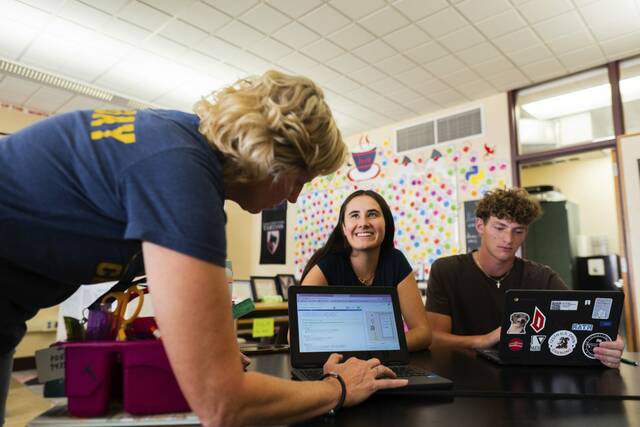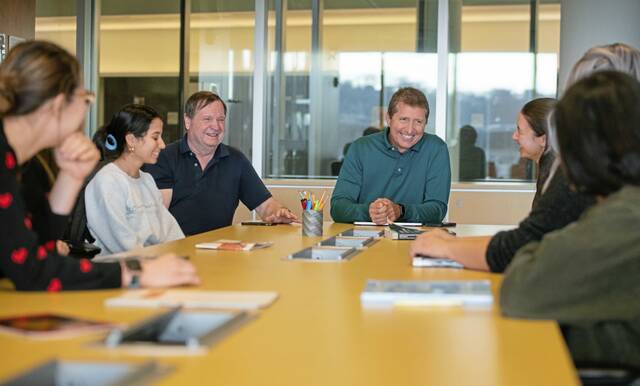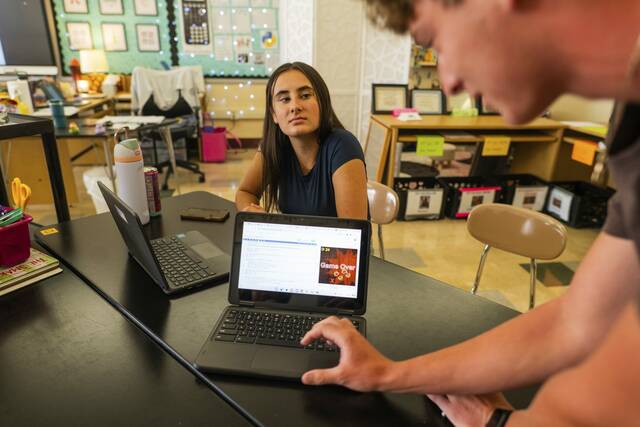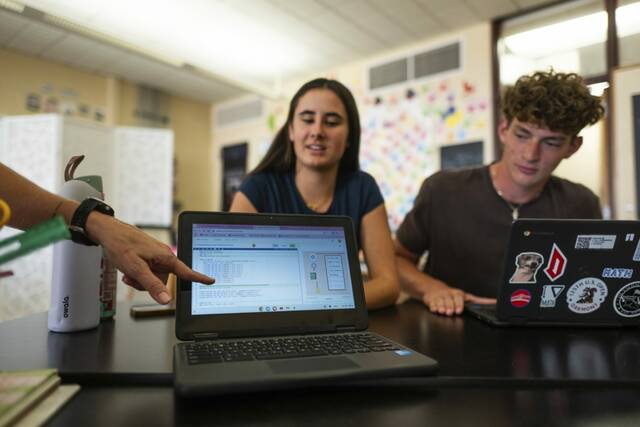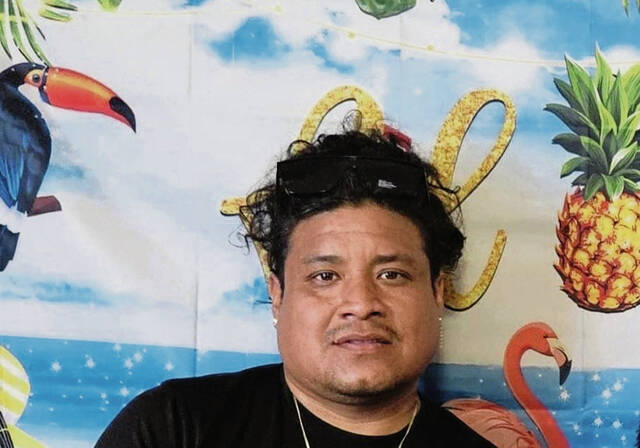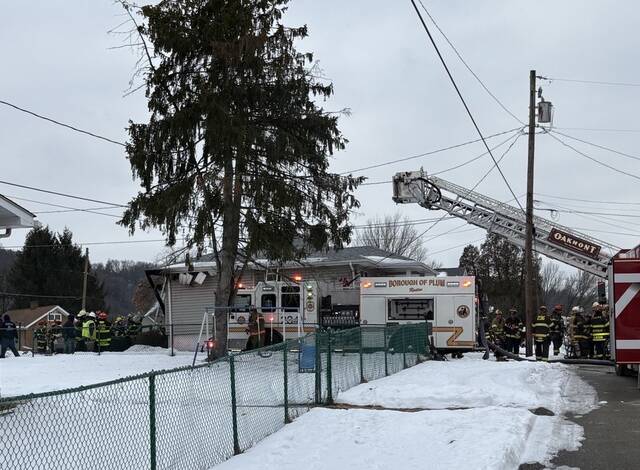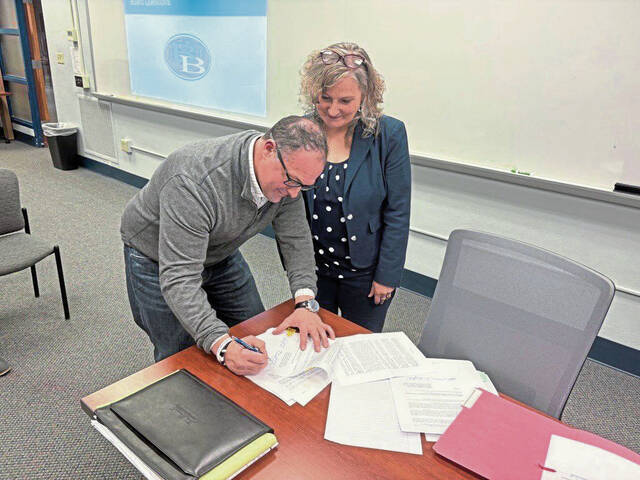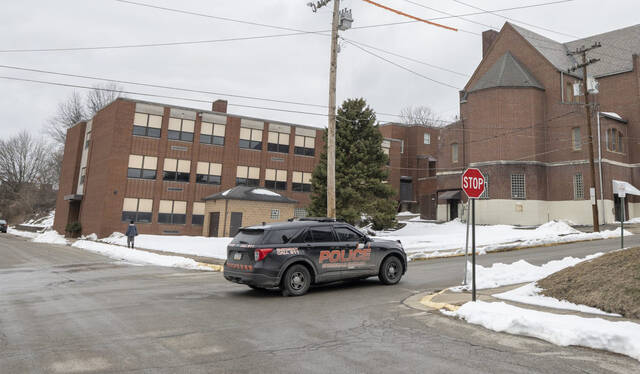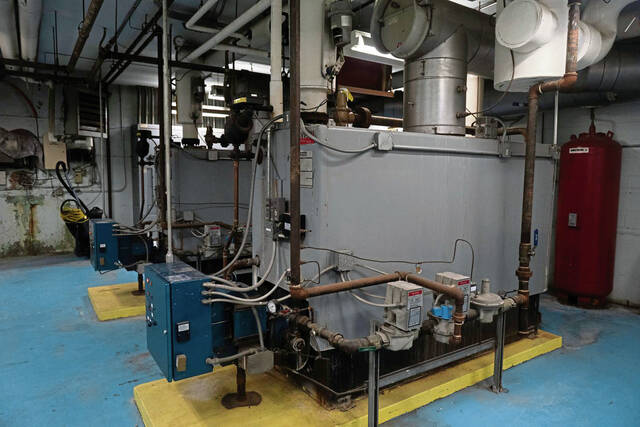The whiteboard in Professor Mark Stehlik’s office at Carnegie Mellon University still has the details of what turned into a computer science program for high school students. Stehlik and colleague David Kosbie co-founded CMU (Carnegie Mellon University) CS (Computer Science) Academy, offering online computer science courses in 2017.
Since its inception, more than 300,000 students in Western Pennsylvania and 500,000 worldwide have utilized the program, which is designed to help teachers lead high-quality coding and programming lessons.
“There is a lot of problem solving and you learn programming structure and coding,” said Kiski Area High School math department and computer science teacher Amy Calisti. “With this program, students have the ability to go above and beyond.”
Calisti and colleague Melissa Schaeffer, a Carnegie Mellon graduate, have been teaching this program since 2020. Schaeffer said Carnegie Mellon answers whatever questions she and Calisti have.
The two teach AP Computer Principles through the CMU CS Academy platform, which utilizes the computer language Python.
It has helped Kiski Area High School junior Anna Leviski.
“Technology will be important our entire lives,” Leviski said. “At first I thought I could not do this, but I figured it out. It takes time, but I built my coding knowledge and also became a better problem solver. Communication is key in anything you do and each line in computer programming is in communication with the other lines, so they all work together to create a bigger picture.”
Kiski Area High School junior Dante Perrin used the program to create a video game.
“Having Carnegie Mellon behind all of this gives it more credibility,” Perrin said.
The students wrote code from scratch.
When creating the program, Stehlik and Kosbie considered that a lot of high school and college students know computer games.
“So graphics has been a compelling way to be a vehicle for this program,” Stehlik said.
One of the challenges was that they couldn’t start with a college-level course that they have at CMU. They needed to build a pipeline, they said. They also realized they needed a support system for the teachers.
A group of teachers partnered with them, including computer science teacher Dawn McCullough at South Fayette School District.
“Mark and David are elite academic people,” McCullough said. “They are inspiring and they are willing to work with anybody. I see how this has changed students’ lives.”
One of the most important aspects was that it be accessible to all students.
“We wanted to make sure that we ran on any hardware, no matter how low-end, no matter if someone’s maintaining it with low internet connectivity,” Stehlik said. “Basically, whatever your computer lab is, this would work.”
Kosbie and Stehlik recognized the commitment of the teachers and CMU students who’ve worked on the project.
“That’s the secret sauce, because the teachers and CMU students are incredibly dedicated,” Stehlik said.
Students from every continent are participating in the curriculum that is offered in three languages, most recently Spanish.
One of the aspects is that it brings the experience of CMU into a global classroom. More than 2,000 schools in 66 countries use the program, they said.
The academy program is designed for in-classroom use with a teacher present and for grades 9 through 12.
Currently, artificial intelligence is not part of the content.
“AI is really just emerging now,” Stehlik said. “Every faculty member at CMU right now is wrestling with what do we do with AI. We can’t just throw AI at them because it’s a buzzword. We have to know it’s going to help. We are not quite prepared to do that yet, but we’re very actively and aggressively working toward that. It’s not going away, but it’s still in its infancy.”
There are more than 15,000 teachers involved with the academy, which is available 365 days a year.
The program is free with the single exception of the optional exam for students completing the capstone College Programming and Computer Science course.
Those students can elect to pay $200 and take a final exam. If they pass, they get CMU credit.
At Greater Latrobe Senior High School, recent graduate Charlie Mohler, who is at college in Massachusetts, said the academy was super helpful for learning computer science.
“It starts off basic and was relatively easy,” Mohler said. “It was graphics-based the first year and then it got harder and more in-depth. I do think it was preparing me for college.”
Greater Latrobe Senior High School computer science and math teacher Wendy Lint said it is good for every student, not just those interested in computer science.
“I think this prepares students for basic programming,” Lint said. “It’s very heavy on critical thinking and problem solving and that’s helpful in anything they might do.”
She attended the professional development opportunities CMU offered for high school teachers.
“It is great to have such a great resource like CMU,” Lint said.
Greater Latrobe Senior High School senior Mitchell Horner said when he decided to take the class, he knew it was the first thing he’d ever done with computer science.
“I don’t think I’m going to go into computer science, but some of the skills I learned in the class, like critical thinking, I think will benefit me in anything I can choose,” Horner said.
Mohler plans to study computer science, but isn’t exactly sure what he wants to do because there are several paths, he said.
“Even if you don’t want to go into computer science after taking the class, it’s still super beneficial because it introduces you to a different way of thinking,” Mohler said.
Lint said her hope is that her students have learned some skills that can help them at the next level.
“It is not just if you want to go into computer science,” Lint said. “I think it helps with everything and gives you thinking skills for any class you would take. I definitely recommend it.”


